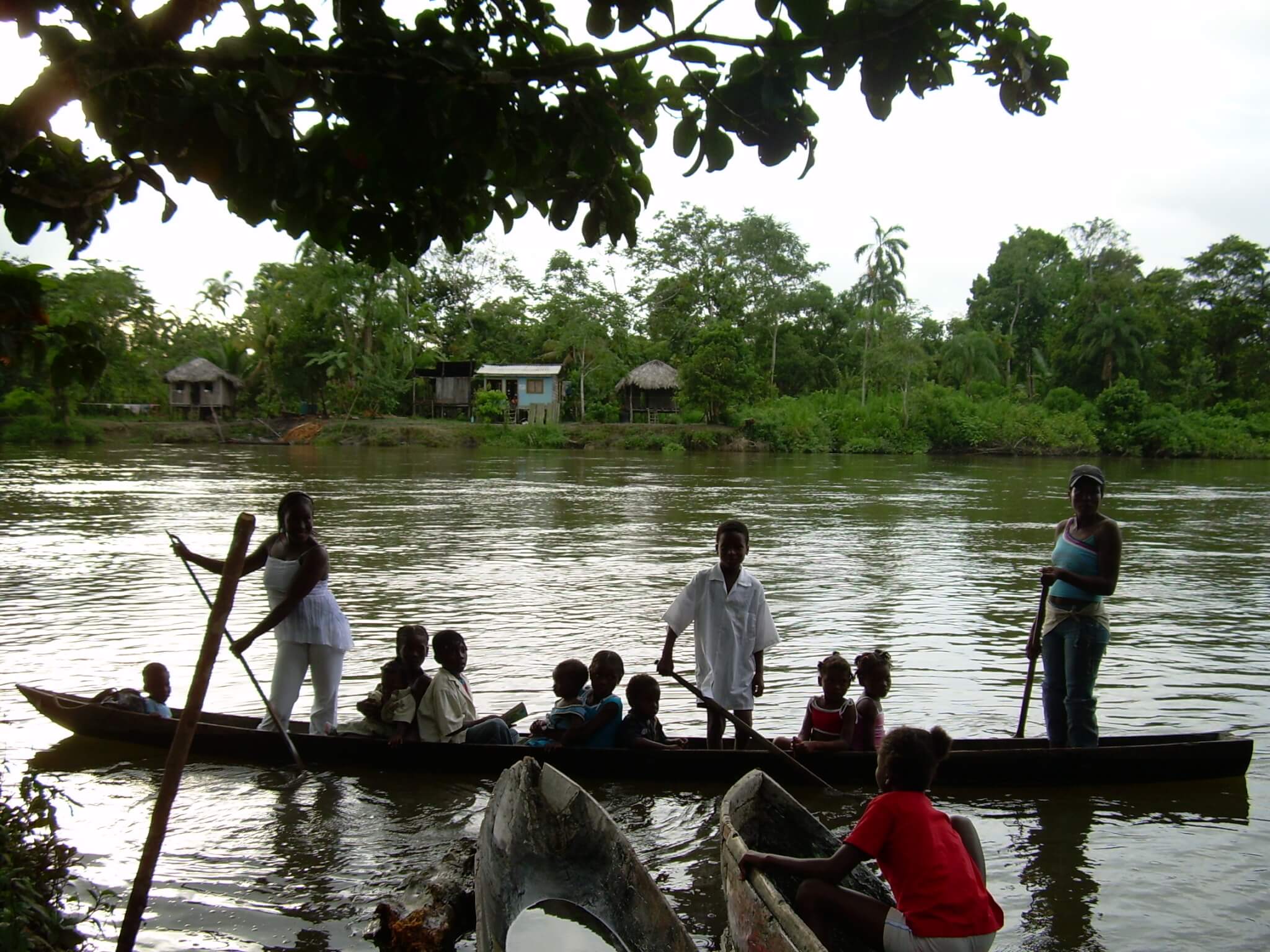Afro-descendant community in Anchicayá, Colombia receives National Human Rights Award
- Major Achievements
- News
10 December 2021

Leaders of the Afro-descendant community of the Anchicayá River in Buenaventura, Colombia, have received the “National Human Rights Award” for their twenty years of legal action to defend their territory. This well-deserved recognition, received last October, reinforces the community’s claims for their rights to inhabit its territory and for the recognition of the damage caused to the river by a megaproject.
In July 2021, the community and their lawyer, Germán Ospina, were notified of the ruling of the Council of State, (the highest authority in administrative law in Colombia) in their case. The ruling, while acknowledging the compensation that should have been paid to the community, ignores several elements that were proven during the proceedings. For example, amounts awarded for individual and collective reparations, moral damages, as well as damage to the health and life of community members were omitted.
General context of the case
In 2001, the Afro-descendant community of Anchicayá was affected by the dumping of toxic sediments trapped in the dam of the Anchicayá River, next to which they reside. The disaster was caused by a joint action of an energy company and public institutions responsible, paradoxically, for the protection of the environment. Since then, the community has been relentlessly recalling and saying, “They killed our river.”
In 2009, the community obtained judicial recognition of the damage caused by the company, in collusion with the state entity that was supposed to supervise its actions. The company and the government were then forced to pay a sum of money for the damage caused by the dumping of toxic sediments in the Anchicayá River. At this stage of the proceedings, the community was on the verge of obtaining some justice for the damage suffered.
However, the compensation obtained in court has been delayed by a series of administrative actions, so that it has not yet materialized.
Defense of the territory: the river and the community are one
The population of Anchicayá inhabits the territory in symbiosis with the river. They derives their food and economic livelihood from the river, which is the result of ancestral fishing activity. This relationship of dependence has allowed the population of Anchicayá to acquire an increased knowledge of the flows, tributaries, currents and fishing sites, as well as the species that live there. The river is a fundamental part of the daily and recreational activities of this people. Several aspects of their culture have their roots in it (dances, instruments, alabaos, etc.) and are recognized as intangible heritage of the nation by the National Heritage Council.
Similarly, the river links the community to the urban center of Buenaventura, the country’s main port, allowing their participation in commercial networks. For the community, the “death of the river” means the impossibility to survive both physically and culturally. Because of the damage caused by the enterprise and the complicity of the State, the community of Anchicayá has gone through a difficult process of uprooting, displacement and poverty during which several of their basic human needs have not been met.
The demands of the community of Anchicayá – as one of its leaders said – go well beyond “money, although it is necessary for the community, but what we are talking about here is to assert our dignity”.
The role of Lawyers Without Borders Canada (ASFC)
ASFC has been supporting the file since 2013. Since then, ASFC has submitted a series of amicus curiae to Colombian high courts. ASFC also attended the visits of the Ombudsman of Colombia to the territory of the community of Anchicayá, alongside the community and their lawyer. Similarly, ASFC participated in the public hearings held at the Congress of the Republic and in the commemorative forums on the case, initiatives that arose from the community and their lawyer. In view of actions seeking to use criminal law to intimidate the judicial activity of lawyer Germán Ospina, ASFC submitted letters to the relevant Colombian institutions to express its concern.
In the immediate future, ASFC is preparing an amicus curia for submission to the Inter-American Commission on Human Rights